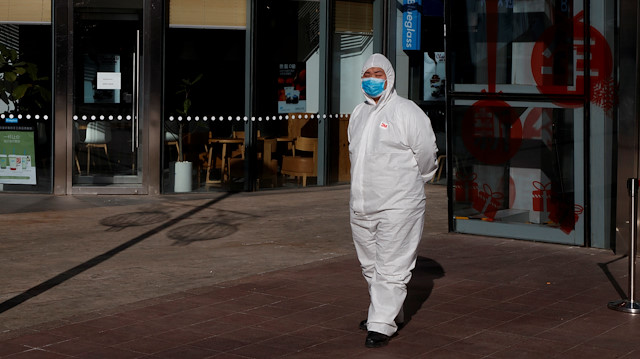
CRUISE EARNINGS TAKE A HIT
Although the carrier said it is operating as usual in North America and Australia, its parent, Carnival Corp, the world's largest cruise ship company, is taking a major hit from coronavirus-related disruptions of its business in Asia.
The company, which ended 2019 with adjusted earnings per share of $4.40, has projected its 2020 financial performance will be diminished by 55 to 65 cents a share, including passenger compensation for canceled bookings.
Paul Meade, 57, a resident of Lincolnshire, England, capping a family visit to Utah with a quick trip to Mexico, said he and his wife were "following the (coronavirus) story on the news."
"But a three-day cruise from L.A., I don't think there's anything to worry about," he said. "We do know the precautions for good hygiene, and we practice them anyway, so I don't think there's reason to be overly concerned."
Dr. William Schaffner, an infectious disease specialist at Vanderbilt University Medical Center in Nashville, Tennessee, agreed there was little to fear from coronavirus, in light of precautions taken by cruise lines.
"The risk of someone getting the flu is infinitely greater than the risk of getting coronavirus if you're cruising in the Western Hemisphere, or even to Hawaii," he said.
Schaffner said cruise lines have done much in recent years to improve disinfectant measures and training of personnel in good hygiene, reducing the frequency of onboard outbreaks of food-borne and respiratory illnesses.
Nevertheless, he said diligent hand-washing, proper covering of coughs and sneezes and self-reporting of illnesses are key to curtailing germs, including seasonal flu and norovirus, a severe intestinal disease that has been particularly troublesome at sea.
Coronavirus is spread primarily through tiny droplets coughed or sneezed directly from an infected person into the face of someone nearby, as opposed to the more contagious "airborne" transmission of a virus like measles, which can remain suspended in enclosed spaces and be breathed in hours after being exhaled by sick individuals, Schaffner said.
Although coronavirus can also be picked up from surfaces, droplet spread is seen as its principal vector, so "widespread disinfection is unlikely to be effective" in curbing its transmission, according to a U.S. Centers for Disease Control and Prevention (CDC) guidance.
Overall, the risk of contracting coronavirus on a cruise in North America remains "very, very low," Schaffner said, adding that his advice to someone expressing an interest in taking such a trip: "Bon voyage."
Hello, the comments you share on our site are a valuable resource for other users. Please respect other users and different opinions. Do not use rude, offensive, derogatory, or discriminatory language.
The floor is all yours.








